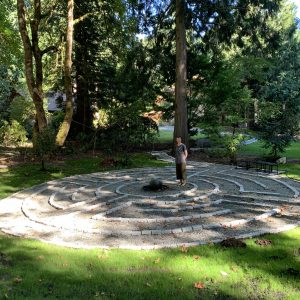 The Yogabliss, Two Rivers/RiverTree Yoga on-line Moving into Meditation classes met this morning. What a joy to share practice as if for the first time. A thread of creativity and playfulness seemed to be woven through our classes today. How sweet shared happiness can be.
The Yogabliss, Two Rivers/RiverTree Yoga on-line Moving into Meditation classes met this morning. What a joy to share practice as if for the first time. A thread of creativity and playfulness seemed to be woven through our classes today. How sweet shared happiness can be.
We reflected on how The Three Tenets of the Zen Peacemakers inform our practice and how they can help us respond to the world with open minds and hearts. The Peacemakers are a worldwide movement of people who practice meditation, do social action as a path of awakening and service. You can learn more about their fascinating story and work at Zen Peacemakers International.
Poet Laureate Joy Harjo’s poem, Directions to You, affirms the essence of what it is be consciously alive. The poem reminds me of how our essential nature is revealed in meditation.
Mary Oliver’s poem, Bone, speaks of the limits of our knowing and the boundlessness of our loving. Mary’s experience of finding an ancient bone on the beach evokes the long passing of time and the ungraspable nature of the universe.
Sense how you are right now. How does your body feel? How is your mind? And how’s your heart? Relax. Rest your attention with something that feels simple, neutral: breathing, hearing sound or the felt experience of the body. In the passing of time, memories, plans, impulses arise: all are natural experiences of mind. Notice if your mind is resisting or struggling with experience. Know that this practice is about coming to accept the truth of things as they are and learning how we suffer by by not wanting the truth to be. You are bearing witness.
Once there’s a little bit of stability in the mind, whatever arises in each moment can be the object of your meditation. Experiences naturally come and go: sounds, sensations, thoughts and emotions. Have the courage to let go of what you think is happening or the story that you might be telling. This is bearing witness. This is not knowing. Attention is connecting, feeling, observing so intimately. If you get lost or confused you can always come back home to the simplicity of resting with one experience: the in-breath, the out-breath, sensation or sound. What’s it like to open yourself to this moment of being alive in this body?
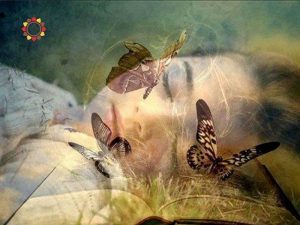 When there’s pain or discomfort – physically – emotionally – psychologically you take a break. Rest with the breath, with sound, with something that’s simple and soothing. Let experience unfold in small doses as you are able. When there’s less pain or no pain you can enjoy the gift of ease that’s available. This is the practice of loving awareness we offer ourselves and extend to others:
When there’s pain or discomfort – physically – emotionally – psychologically you take a break. Rest with the breath, with sound, with something that’s simple and soothing. Let experience unfold in small doses as you are able. When there’s less pain or no pain you can enjoy the gift of ease that’s available. This is the practice of loving awareness we offer ourselves and extend to others:
NOT-KNOWING letting go of fixed ideas about yourself, others, and the universe.
BEARING WITNESS to the joy and suffering of the world
TAKING ACTION that arises from Not-Knowing and Bearing Witness
We follow simple and profound instructions. From An American Sunrise poet Joy Harjo offers these:
Directions To You
Follow them, stop, turn around
Go the other way.
Left, right,
Mine, yours.
We become lost,
Unsteady.
 Take a deep breath,
Take a deep breath,
Pray.
You will not always be lost.
You are right here,
In your time,
In your place.
[. . . ]
We have come to this moment in time
Step by step,
We don’t always listen to directions,
We let the current carry us,
Push us,
Force us along the path.
We stumble,
Get up and keep moving.
[. . .]
We find solitude,
Time to take in breath and
Pray.
Even in darkness you
Can be found.
 Call out even in a whisper
Call out even in a whisper
Or whimper,
You will be heard.
To find,
To be found,
To be understood,
To be seen,
Heard, felt.
You are,
Breath.
You are,
Memory.
You are,
Touch.
You are,
Right here.
As you rest on Earth’s body feel how: “You are, Breath. You are, Memory. You are, Touch. You are, Right here.” We can remember how it is: “To find, To be found, To be understood, To be seen, Heard, felt.” In this way we ready ourselves for compassionate action. Right now we can reflect on the experience of things dropping away – the things we’ve relied on for stability; the familiar ways of living we’ve taken for granted. How do we respond to the unsettling forces of our times? Right now we are taking shelter as described by the former abbot of the Zen Center of Los Angeles, Wendy Egyoku Nakao Roshi:
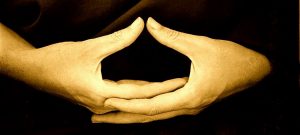 . . . shelter in the place before anything arises . . . a place of the deepest rest where self-interest has not yet entered. . . . You yourself can go to the darkness and become like an empty vessel, empty of points of view and preferences. An empty vessel refuses nothing and receives everything that is coming at it from all directions. By practicing in this way, you can create more space to accommodate your own reactivity and the points of view of others.
. . . shelter in the place before anything arises . . . a place of the deepest rest where self-interest has not yet entered. . . . You yourself can go to the darkness and become like an empty vessel, empty of points of view and preferences. An empty vessel refuses nothing and receives everything that is coming at it from all directions. By practicing in this way, you can create more space to accommodate your own reactivity and the points of view of others.
Right now we can reflect on how we meet the world. What do we choose to let in and what do we try to exclude from the world? How do we find our center in this great constellation of interconnected life? These are questions we can live with every day, in every exchange, in every experience. What am I opening to? How am I meeting this person? Am I sure what I know is true?
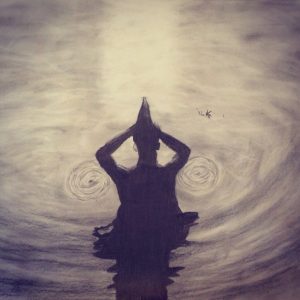 In practice we strengthen our awareness of thoughts, feelings and sensations as they arise and pass. We train in creating the inner spaciousness and stability that gives us a choice in how we respond to what arises. We bring curiosity and compassion to our experience. We stay vitally alive to the truth of our humanness – our inner and outer struggles. We choose what to cultivate – how we grow.
In practice we strengthen our awareness of thoughts, feelings and sensations as they arise and pass. We train in creating the inner spaciousness and stability that gives us a choice in how we respond to what arises. We bring curiosity and compassion to our experience. We stay vitally alive to the truth of our humanness – our inner and outer struggles. We choose what to cultivate – how we grow.
In outline of the Zen Peacemakers Three Tenets Roshi Wendy writes:
Bearing witness can allow you to eventually come to terms with the most difficult life circumstances. The practice is always available to you regardless of the time, place, situation, or people involved. . . . In bearing witness, you are actively engaged and embodied, even struggling, with whatever is arising. . . . To hold to the center is. . . . about living the fullness of your own humanity. You are alive, so be fully alive.
We practice so that our actions are caring – caring enough to serve – the whole situation nothing left out. Sometimes this means staying present with what might be the discomfort, the anxiety of not knowing what to do. We stay. We stay open eyed, open “earred,” open hearted. From this engaged openness caring action can arise.
Mary Oliver’s poem, Bone, speaks of the limits of our knowing and the boundlessness of our loving:
1.
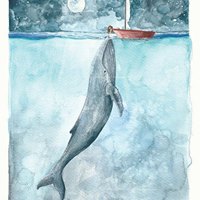 Understand, I am always trying to figure out
Understand, I am always trying to figure out
what the soul is,
and where hidden,
and what shape —
and so, last week,
when I found on the beach
the ear bone
of a pilot whale that may have died
hundreds of years ago, I thought
maybe I was close
to discovering something —
for the ear bone
2.
is the portion that lasts longest
in any of us, man or whale; shaped
like a squat spoon
with a pink scoop where
once, in the lively swimmer’s head,
it joined its two sisters
in the house of hearing,
it was only
two inches long —
and thought: the soul
might be like this —
so hard, so necessary —
3.
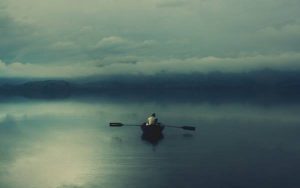 yet almost nothing.
yet almost nothing.
Beside me
the gray sea
was opening and shutting its wave-doors,
unfolding over and over
its time-ridiculing roar;
I looked but I couldn’t see anything
through its dark-knit glare;
yet don’t we all know, the golden sand
is there at the bottom,
though our eyes have never seen it,
nor can our hands ever catch it
4.
lest we would sift it down
into fractions, and facts —
certainties —
and what the soul is, also
I believe I will never quite know.
 Though I play at the edges of knowing,
Though I play at the edges of knowing,
truly I know
our part is not knowing,
but looking, and touching, and loving,
which is the way I walked on,
softly,
through the pale-pink morning light.

